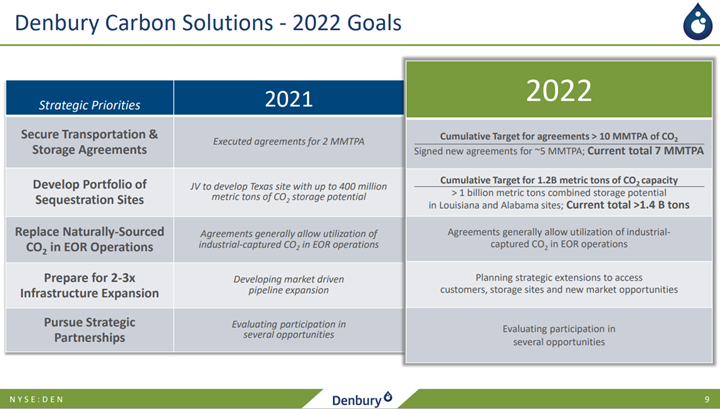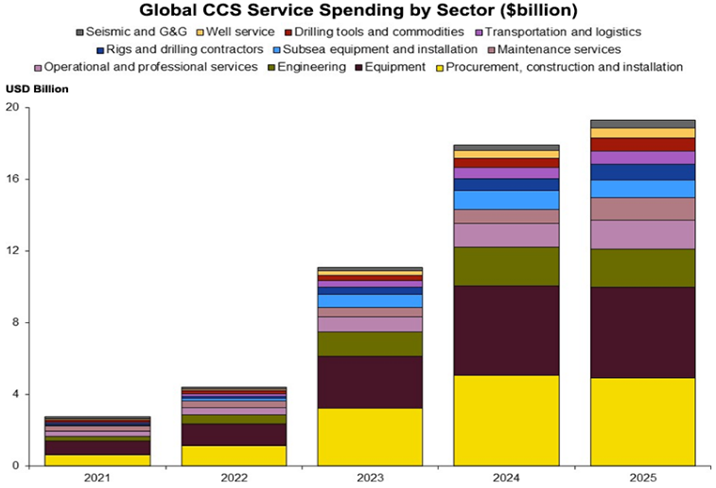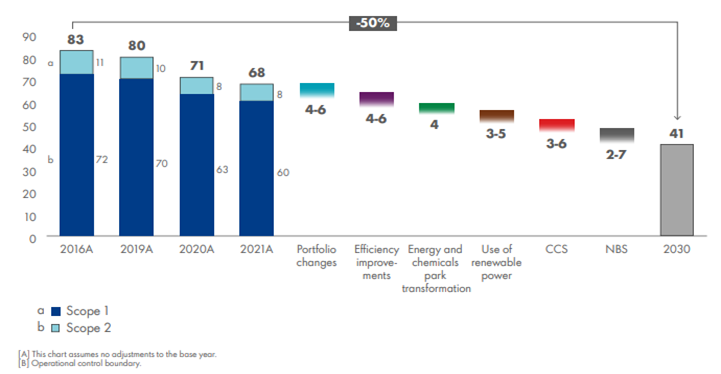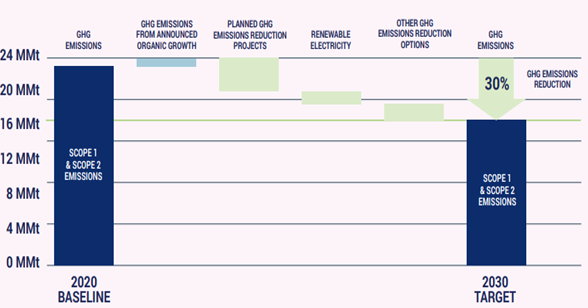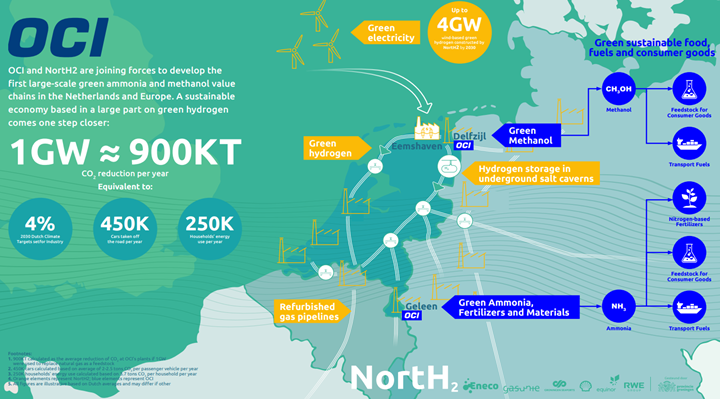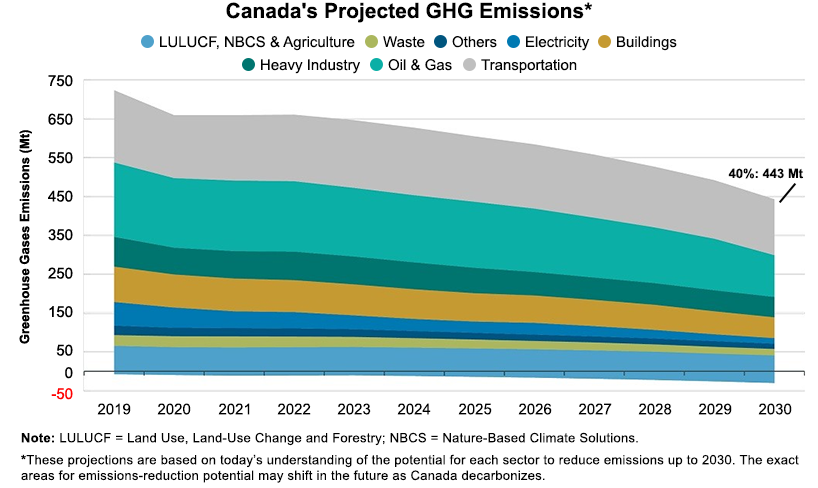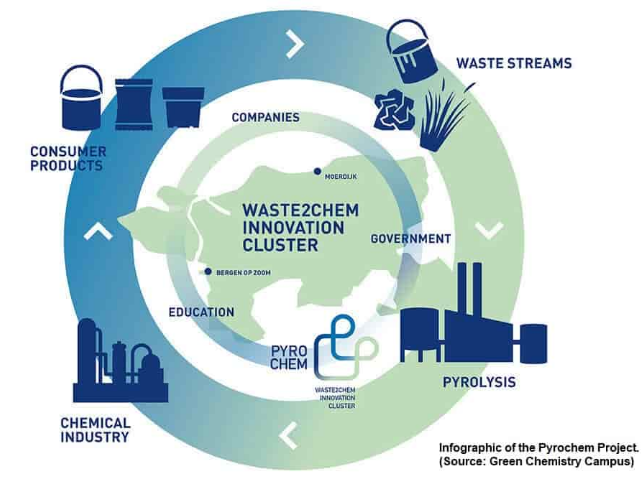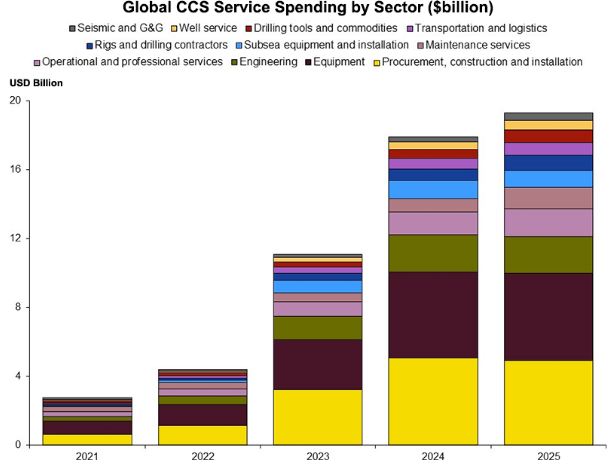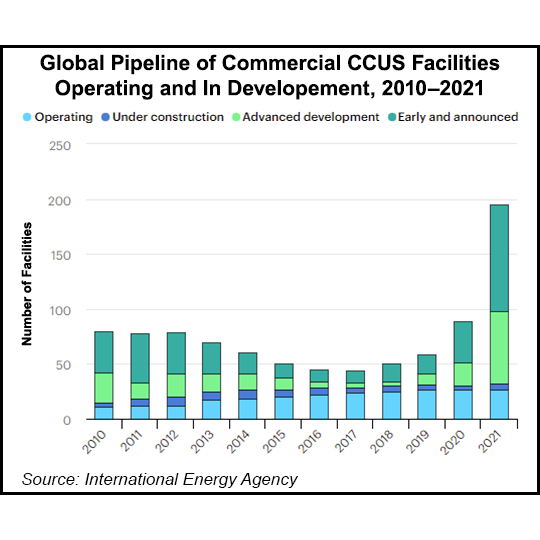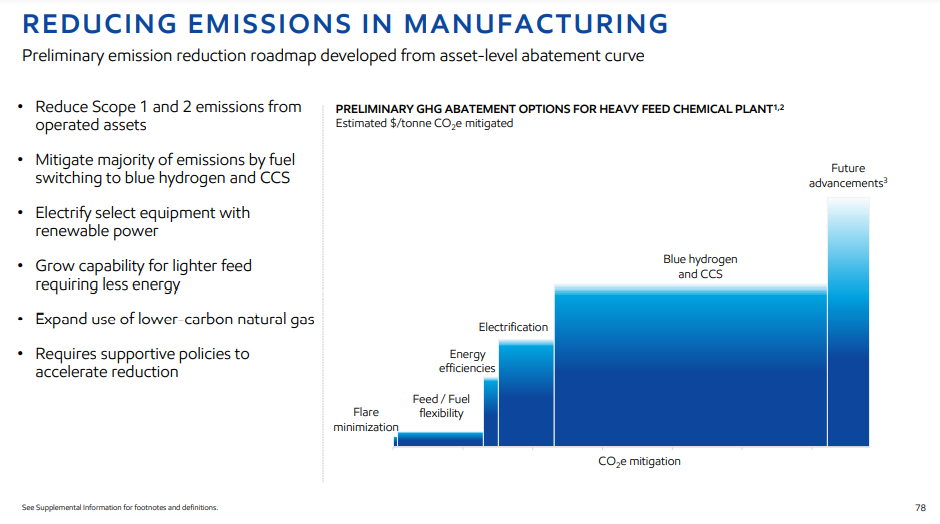We are seeing a flood of CCUS announcements in the US in 2022, but they look like “gathering” exercises at this stage rather than projects that are ready for FID. Companies are chasing potential pore space and, like Talos, leasing onshore and offshore (mainly offshore) acreage, where they believe opportunities exist to sequester CO2. These announcements sometimes include firm commitments from companies that have CO2 surpluses and sometimes are more speculative. At this stage, it seems like a “land grab” and “customer grab”. There is wide agreement that the incentive structure in the US – centered around the 45Q tax credit scheme – is not enough to drive much real investment, unless it can be stacked with other credits like the LCFS structure, which only applies to fuels in California today. We see the land grab as relatively low-cost and low-risk positioning in the hope that incentives or economics change. There are some instances where investments will go ahead, and these will focus on processes that have a reasonably low cost of carbon capture – fermentation, urea, natural gas clean-up for LNG, and a handful of other processes. The LSB Industries announcement for Arkansas, highlighted this week, is likely an example of where the economics work even if LSB cannot get much of a premium for the low-carbon urea.
CCS And Plastic Recycling Ambitions Running High
May 5, 2022 12:31:00 PM / by Graham Copley posted in Carbon Capture, Recycling, LNG, CCS, CO2, natural gas, fermentation, Talos, urea, low carbon, CCUS, Denbury, Plastics recycling, LSB Industries, Berry Global
A Boost For Carbon Capture: More Constrains For Renewable Power
Apr 27, 2022 12:25:06 PM / by Graham Copley posted in ESG, Carbon Capture, Climate Change, Sustainability, Carbon Tax, CCS, Blue Hydrogen, Renewable Power, Chemical Industry, decarbonization, Aemetis, renewable energy, clean energy, SAF, 45Q tax credit, Fulcrum Bioenergy
The CCS spending chart below is quite detailed, but shows the limited amount of spending in 2021 and 2022 and may underestimate the amount of seismic spending needed, especially in the US, as companies prepare permit applications. We do not expect to see much spending in the US before mid-decade beyond permit applications. However, as we discuss in today’s ESG and Climate report, should the API proposed carbon tax, or something similar, be additive to the 45Q tax credit, we could see a step-change in CCS when/if the tax is approved. The tax on its own is likely not enough to drive decarbonizing investment, but when added to 45Q it could be a specific trigger for CCS investment, and we could see a step-change in the second half of the decade. This might involve large-scale blue hydrogen production, especially on the Gulf Coast to decarbonize the refining and chemical industries.
Shell Saying All The Right Things, But Likely Not Enough
Apr 20, 2022 2:24:59 PM / by Graham Copley posted in ESG, Carbon Capture, Climate Change, Sustainability, LNG, CCS, CO2, Energy, Shell, fossil fuel, carbon values, energy transition, carbon intensity
Shell issued its 2021 energy transition progress this morning and the report contains a lot of detail about what Shell has done so far and what the company intends to do. The report is a record of progress and intent and is targeting both general stakeholders as well as the Shell board and annual meeting, where approval of the plan will be sought. When compared with other reports we have seen from other companies, this summary is comprehensive. It provides some concrete steps to achieving emission goals in 2030 – exhibit below - while remaining appropriately vague about getting to 2040 and 2050 targets. However, we would note how much portfolio changes likely added to the 2016 to 2021 progress – likely proportionately much more than they are expected to contribute from 2022 to 2030. Both renewable power and CCS figure in the 2030 projections below and Shell will need to get moving on the CCS front of it is to sequester 3-6 million tons of CO2 per annum by 2030. The expectations are likely based on the European offshore projects, as it may take longer than 8 years to get permits and investments in place in the US. The US could move faster but the EPA would likely need to grant primacy to at least Louisiana and Texas for things to speed up and we are not convinced that this will happen soon. Like many of the other company 2030 plans that we have seen, it is likely that much of Shell’s progress will come in the last couple of years of the decade – especially on CCS.
Many Of The 2030 Climate Targets Will Not Come Much Before 2030
Apr 13, 2022 3:14:36 PM / by Graham Copley posted in ESG, Hydrogen, Carbon Capture, Climate Change, Sustainability, CCS, CO2, Renewable Power, Emissions, ExxonMobil, LyondellBasell, Dow, carbon abatement, renewable fuels
Given the lead time to get some of the emission abatement projects in place – whether it be renewable power or hydrogen with carbon capture – many of the 2030 goals that we see, like the LyondellBasell chart below – are likely to be just that – plans for 2030, with not much in the years in between. We see very little CCS coming online in the US over the next 5 years because of permitting and because of the lead time for any large hydrogen or power project that might be associated with the CCS. Not too many companies seem interested in cleaning up existing CO2 streams and are more interested in building alternative capacity that generates easier to capture CO2 – such as hydrogen from an ATR. These are expensive and long lead-time projects. LyondellBasell, ExxonMobil, Dow, and others might meet their 2030 targets but it might all happen in 2029/30.
Green Hydrogen Ambitions Too Aggressive: CCS Is The Answer
Apr 8, 2022 1:04:23 PM / by Graham Copley posted in ESG, Hydrogen, Carbon Capture, Climate Change, Sustainability, Green Hydrogen, CCS, Blue Hydrogen, Renewable Power, renewable energy
The two charts below today are interesting bedfellows as while one talks about yet more, likely impractical, hydrogen ambitions, the other talks about a possible solution.
Strong Challenge In Canada And Collaboration In Germany
Mar 31, 2022 2:27:55 PM / by Graham Copley posted in ESG, Hydrogen, Carbon Capture, Climate Change, Sustainability, Green Hydrogen, CCS, Renewable Power, Emissions, BASF, renewables, EV, materials, Shortage, Canada, renewable, materials costs, Germany, Henkel, GHG
The Canadian targets highlighted below are ambitious and will likely not happen without the significant CCS projects planned for Alberta. The CCS opportunity will drive down energy and chemical (heavy industry) based emissions meaningfully and could also be the basis for new power generation capacity to allow the transport industry reductions that the country is looking for – either through EVs or hydrogen-based transport.
Is Your Recycling Really Green?
Mar 29, 2022 2:19:24 PM / by Graham Copley posted in ESG, Hydrogen, Carbon Capture, Recycling, Climate Change, Sustainability, CCS, Emissions, Pyrolysis, carbon footprint, Offshore CCS, gasification
The focus of our ESG and Climate report tomorrow will be on recycling and the challenges associated with each proposed solution. The piece that most chemical recycling projects, like the one highlighted below, fail to mention is that the heat required for pyrolysis is significant, and the carbon footprint is very high unless you can heat through renewable power or you can capture the carbon associated with the heat. Given the location of the facility shown below, it could have access to offshore wind-based power and/or could tie into one of the offshore CCS projects that have been proposed. Both pyrolysis and gasification processes have very high emissions.
CCS Wont Work Without Policy And Neither Will Energy Conservation
Mar 22, 2022 12:48:43 PM / by Graham Copley posted in ESG, Carbon Capture, Climate Change, Sustainability, CCS, CO2, Energy, Emissions, IEA, Oil, natural gas, clean energy, renewable, fossil fuels, renewable capacity, EPA
One of the subjects that we will cover at length in the ESG and Climate report tomorrow (to be found here) is the significant need for CCS globally, but especially in the US, as we see more balanced forecasts of energy supply emerging which show more use of fossil fuels for longer – especially, but not limited to natural gas. These forecasts recognize the current energy momentum as well as some of the more practical realities around the rate of construction of renewable capacity relative to energy demand growth. The CCS plans that are appearing all over the place are nothing more than plans right now and if the EPA permit activity is a true barometer – not much has moved beyond planning. This needs to change and we likely need both an increase in CCS incentives – which could take many forms – as well as some streamlining around the permitting process. Simply waiting and hoping for a renewable miracle is not going to work – nor is some sort of CCS cost breakthrough.
Lots Of Needed CCS Waiting For The Right Incentives
Mar 17, 2022 12:23:31 PM / by Graham Copley posted in ESG, Carbon Capture, Climate Change, Sustainability, CCS, CO2, IEA, 45Q, CCUS, Denbury
The CCS chart below is one that we have shown before and we make the same observations again as little has changed on the “action” side. The number of facilities under discussion, advanced or otherwise, continues to rise – see the Denbury announcement below, for instance - but very little is moving to the construction phase. While in the US this is in part a permitting issue, with the permit process taking several years, once you have a site plan, we get the sense that everyone is waiting for a more supportive incentive program – either a large CO2 penalty (tax) or an increased incentive – such as increasing the 45Q value. MOUs are being signed with landowners – as is the case with Denbury – and potential offtake partners, but very little cash is going out of the door for any of the US projects yet. Given the EIA analysis above, it would seem critical that something is done to move these projects from planning to action fairly quickly – if the US is going to need CCS at scale in 15-20 years, we need to start down that learning curve now. For more see the energy section of today's daily report.
ExxonMobil: Illustrating That Energy Transition Can Be Done (With The Right Policies)
Mar 2, 2022 1:14:58 PM / by Graham Copley posted in ESG, Hydrogen, Carbon Capture, Climate Change, Sustainability, CCS, Blue Hydrogen, CO2, ExxonMobil, Net-Zero, carbon credit, carbon cost, energy transition
Playing right into the central argument of our ESG and Climate report is today’s ExxonMobil investor day, and we include a couple of key slides around the company's proposed path to net-zero below. The first slide shows just how much blue hydrogen (with CCS) the company plans to add to offset its emission-generating fuels – the volumes implied in the chart are high.


